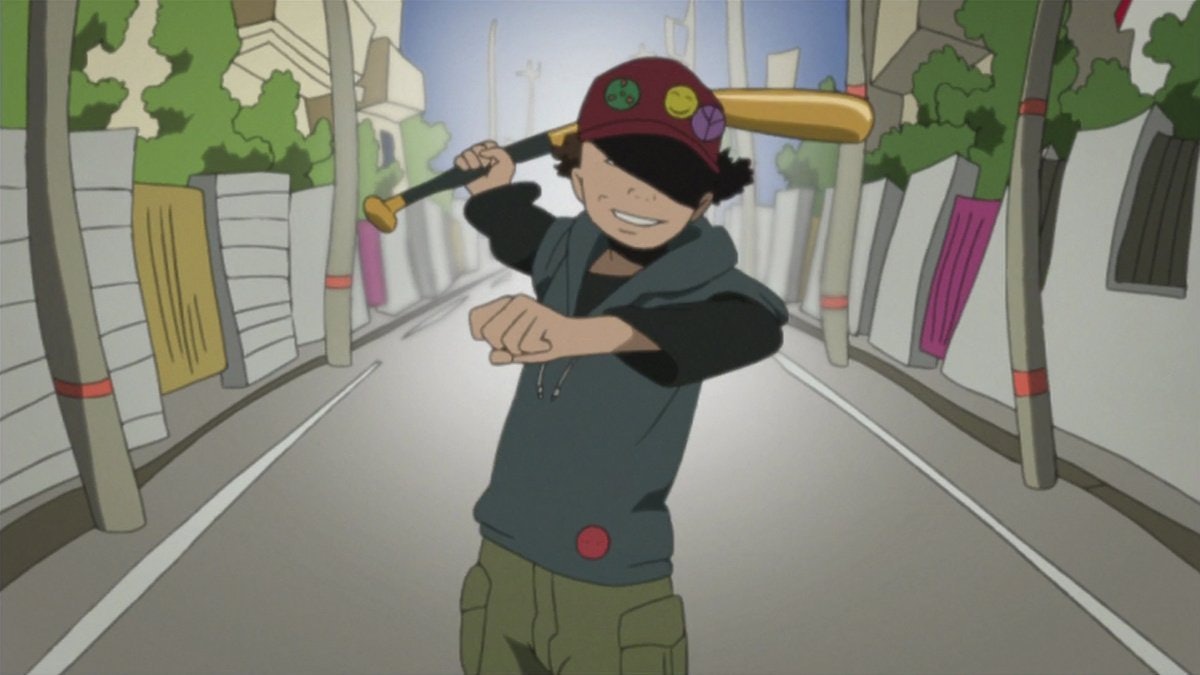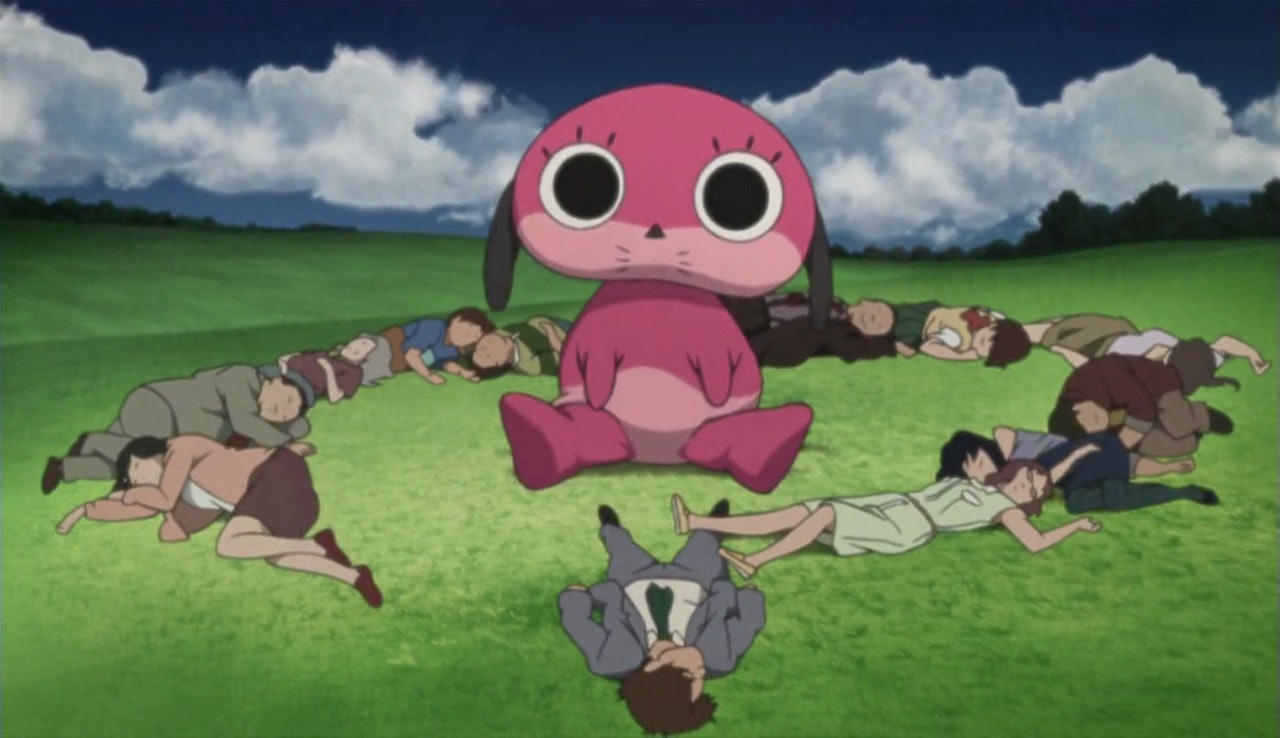
Paranoia Agent is a lot of things — it’s a display of a moral panic in motion, as fear grips a population and turns it against itself. It’s a dive into how the media can spread information and disinformation in equal measure, creating a reality where fable is just as “true” as fact. Hearing that, it might lead one to say, on the 20th anniversary of Paranoia Agent’s final episode, “Wow, it sounds ahead of its time.”
And, it sort of is. But that was one of the many talents of its creator Satoshi Kon, the anime wunderkind who helmed other masterpieces like Perfect Blue, Millennium Actress, and Paprika. Paranoia Agent wasn’t Kon’s first work for TV, but it was the first (and only) series he created.
One part procedural and one part deep dive into the various psyches of multiple characters, Paranoia Agent told the story of a meek artist being attacked by an enigmatic figure, setting off a chain reaction of alarm and angst that affects everyone from schoolchildren to the police. But the series quickly sets itself apart from other anime shows of the time when the question of “Who is the criminal?” becomes overshadowed by “What and why is the criminal?”
Many of Kon’s major projects deftly jump between reality and delusion, a theme that one can find even in work that Kon did not direct himself, like the “Magnetic Rose” segment of the film Memories (which Kon wrote the screenplay for). It is in this blurry line that Kon drifts between genres as well — Perfect Blue is terrifically horrifying, while Paprika takes full advantage of its various dream states and delivers a cornucopia of outlandish imagery.
Paranoia Agent, often grounded in a street level story about dissecting crimes (and how the haunting specter of those crimes descends, plague-like, into the imaginations of everyone around) leans more into the former. That’s not to say that it doesn’t feel at home in the surreal; nothing is stranger than the concoctions of the human brain. In the ninth episode, “ETC,” a group of housewives compare stories about the mysterious attacker Lil’ Slugger, with each one becoming more troublingly outlandish than the last, until the viewer can’t really tell what is meant to be genuine anymore.
But the horror of Paranoia Agent is aptly described by the title — it’s all anxiety, desperation and, well, paranoia. In Episode 2, a boy is tormented at school due to his resemblance to Lil’ Slugger (a “character,” mind you, that has only been visualized in the panicked descriptions of victims). Anyone that was ever bullied or felt out of place in school can identify with the way Kon and his collaborators capture the distinct emotional turmoil of the uniquely awful situation. The same goes for characters who feel overworked or trapped in toxic friendships or deal with familial trauma. Paranoia Agent tugs the strings of myriad types of despair.
And, like Kon’s other work, it does so in a way that manages to feel applicable today. Just like in the way things like internet connections and troubled anime productions feel just as (tragically) fresh now as they did when Paranoia Agent first aired in 2004, so do things like the dehumanizing treatment of fame in 1997’s Perfect Blue. But, like many things that are “ahead of their time,” it has less to do with predicting the future and more to do with grasping the inevitable unpleasant cycles that have existed for as long as the subject matter has. One can find traces of Paranoia Agent hundreds of years ago, when figures like Jack the Ripper inspired a city-wide nightmare, one only worsened by the proliferation of rumor and yellow journalism.

Kon passed away in 2010 at the age of 46, a devastating blow to anime on an international scale. Kon had always been a singularly thoughtful artist, and he had joined the pantheon of modern names like Cowboy Bebop creator Shinichiro Watanabe and Neon Genesis Evangelion architect Hideaki Anno in pushing the medium forward. Even Paranoia Agent, which, according to an interview that Kon had with Japan Media Arts Plaza, began as a “mountain of unused ideas for both stories and arrangements” became a landmark TV series. Knowing what he ended up accomplishing, we can only dream of what worlds he could’ve left us with.
For there are few anime that are as culturally and personally perceptive as Paranoia Agent. Kon and his team at Madhouse, Inc. didn’t just give his audience a story about a puzzling string of crimes, but also one about how we react to fear as a community. How it seeps into our personal lives and alters our everyday moments in a way that makes us question our beliefs and even how we see the world. Paranoia Agent is a story about its characters but it’s also about us, and when you can do that, your legacy becomes undeniable.







